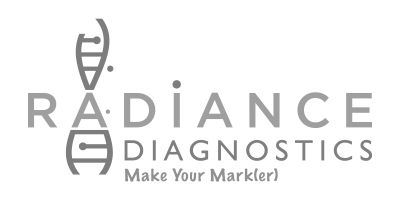Description
Thyroid peroxidase antibody
Thyroid peroxidase is a type of protein (called an enzyme) that cells in the thyroid gland use to make thyroid hormone. If these enzymes leak out into the bloodstream (as when thyroid cells are damaged) the immune system makes antibodies against these proteins. The thyroid peroxidase antibody test measures these antibodies in the blood.
How the Test is Performed
A blood sample is needed.
How the Test will Feel
When the needle is inserted to draw blood, some people feel moderate pain. Others feel only a prick or stinging. Afterward, there may be some throbbing or a slight bruise. This soon goes away.
Why the Test is Performed
This test is done to confirm the cause of thyroid problems, including Hashimoto thyroiditis.
The test is also used to find out if an immune or autoimmune disorder is damaging the thyroid.
Normal Results
A negative test means the result is normal.
Normal value ranges may vary slightly among different laboratories. Some labs use different measurements or may test different specimens. Talk to your healthcare provider about the meaning of your specific test results.
What Abnormal Results Mean
A positive test may be due to:
- Granulomatous or subacute thyroiditis (an immune reaction of the thyroid gland that often follows an upper respiratory infection)
- Hashimoto thyroiditis (a reaction of the immune system against the thyroid gland)
High levels of these antibodies have also been linked with an increased risk of:
- Miscarriage
- Preeclampsia (high blood pressure and protein in the urine after the 20th week of pregnancy)
- Premature birth
- In vitro fertilization failure
Important: A positive result does not always mean that you have a thyroid condition or that you need treatment for your thyroid. A positive result may mean that you have a higher chance of developing thyroid disease in the future. This is often associated with a family history of thyroid disease.
Antithyroid microsomal antibodies may be seen in your blood if you have other autoimmune conditions, including:
- Autoimmune hemolytic anemia
- Autoimmune hepatitis
- Autoimmune adrenal disease
- Rheumatoid arthritis
- Sjögren syndrome
- Systemic lupus erythematosus
Risks
There is little risk involved with having your blood taken. Veins and arteries vary in size from one person to another and from one side of the body to the other. Obtaining a blood sample from some people may be more difficult than from others.
Other risks associated with having blood drawn are slight, but may include:
- Excessive bleeding
- Fainting or feeling lightheaded
- Multiple punctures to locate veins
- Hematoma (blood buildup under the skin)
- Infection (a slight risk any time the skin is broken)
Alternative Names
Thyroid anti microsomal antibody; Antimicrosomal antibody; Microsomal antibody; Antithyroid microsomal antibody; TPOAb; Anti-TPO antibody
Source: MedlinePlus, National Library of Medicine
MedlinePlus brings together authoritative health information from the National Library of Medicine (NLM), the National Institutes of Health (NIH), and other government agencies and health-related organizations


